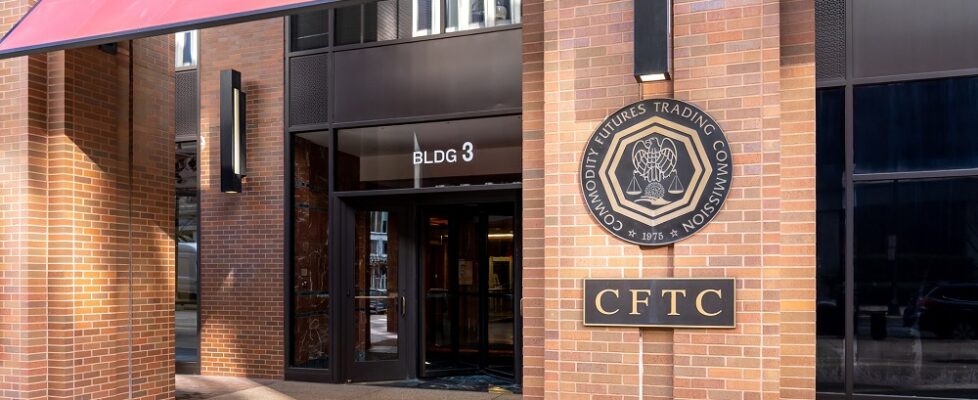CFTC amends its complaint against Archegos
About four months after the Commodity Futures Trading Commission (CFTC) took Archegos Capital Management, LP and Archegos’s Chief Financial Officer, Patrick Halligan, to Court, the regulator has amended its complaint against the defendants.
The amended complaint, filed in the New York Southern District Court, alleges that, in the span of a year, between March 2020 and March 2021, Archegos and Halligan, and others acting on their behalf or under their direction, engaged in a scheme whereby they intentionally and/or recklessly made and disseminated false or misleading material information and/or omitted to make and disseminate such material information to their trading swap counterparties and took steps to deliberately conceal the true nature and extent of this scheme from their Swap Counterparties.
During this period, the value of Archegos’s portfolio increased fifteen-fold before it abruptly collapsed, causing its Swap Counterparties to suffer losses totaling billions of dollars.
The CFTC complaint alleges that Archegos’s rise and fall arose from a pattern of deceit in which Defendants and their Accomplices routinely led Archegos’s Swap Counterparties to falsely believe that the portfolio of Archegos Fund, LP, a fund managed by Archegos, was far less risky than it actually was.
Beginning in March 2020, Archegos Fund embarked on a new long/short trading strategy that was materially different from its historical practice. The portfolio for this new trading strategy consisted, in large part, of: (1) long total return swaps (“TRS”) referencing single-name securities; and (2) short TRS designed to partially hedge the risk of the long swaps, based on exchange-traded funds and custom baskets.
Under this new strategy, Archegos, as investment manager of Archegos Fund, caused Archegos Fund to enter into hundred million-dollar long single-name TRS on a daily basis that focused on a concentrated group of securities. Due to the size of Archegos Fund’s positions, they could not easily be liquidated. These trades were spread across at least eight different counterparties, and therefore each Swap Counterparty saw only a fraction of Archegos Fund’s total exposure. Swap Counterparties thus engaged in frequent oral and written communications with Archegos’s representatives to try to understand the aggregate composition of Archegos Fund’s holdings and to gauge the risk associated with Archegos Fund’s whole portfolio.
During the course of these communications, Defendants and their Accomplices repeatedly misrepresented material facts or omitted to state material facts relevant to assessing the risk of Archegos Fund’s portfolio, including the size and concentration of its largest long positions, amount of unencumbered cash, and liquidity. Defendants and their Accomplices misrepresented and/or hid material facts in order to conceal the true risk of Archegos Fund’s portfolio so that Archegos Fund could obtain additional capacity to trade even greater volumes of highly leveraged, concentrated, and illiquid long positions, while maintaining favorable margin rates.
Accordingly, Archegos misled its Swap Counterparties into believing that they had truthful information regarding Archegos’s portfolio.
The Swap Counterparties tried to mitigate the risk posed by Archegos Fund’s long single-name TRS by requiring Archegos Fund to maintain sizable short swap positions. Archegos Fund met these short requirements primarily through Broad-Based Security Index Swaps that referenced large and liquid sections of the market. These Broad-Based Security Index Swaps were designed to act as hedges to mitigate the risks imposed by the long single- name TRS positions in Archegos Fund’s portfolio. Due to Archegos’s misrepresentations, Archegos Fund’s Swap Counterparties relied on material false information and in turn could not accurately assess the risk posed by Archegos Fund’s aggregate positions and could not accurately calibrate the appropriate level of risk controls. .
Starting on Tuesday, March 23, and continuing through the rest of the week, virtually all of Archegos Fund’s largest long positions sharply declined, triggering a cascade of margin calls from its Swap Counterparties totaling over $13 billion. The margin calls far exceeded Archegos Fund’s available cash, causing it to collapse, dismiss employees, and cease operations. During this week, Defendants took steps to conceal the true nature and extent of the scheme from its Swap Counterparties.
Many of Archegos Fund’s Swap Counterparties suffered the consequences of Archegos Fund’s trading strategy, which was based on repeated lies. This is so because to hedge Archegos Fund’s long single-name swap positions, its Swap Counterparties typically took cash positions in the same referenced asset.
As a result, one of Archegos Fund’s Swap Counterparties lost over $5 billion; another lost almost $3 billion; and in total, Archegos Fund’s Swap Counterparties lost over $10 billion.
The CFTC argues that the defendants have engaged, are engaging in, or are about to engage in practices that violate the provisions of the Commodity Exchange Act (“Act”) and the Commission’s regulations (“Regulations”), including Section 6(c)(1) of the Act, 7 U.S.C. § 9(1), and Regulation 180.1(a)(1)–(3), 17 C.F.R. § 180.1(a)(1)–(3) (2021).
Archegos is also liable for the actions of its officers, employees, or agents pursuant to Section 2(a)(1)(B) of the Act, 7 U.S.C. § 2(a)(1)(B), and Regulation 1.2, 17 C.F.R. § 1.2 (2021). Halligan aided and abetted Archegos’s violations and is therefore also liable for those violations pursuant to Section 13(a) of the Act, 7 U.S.C. § 13c(b).
Accordingly, pursuant to Section 6c of the Act, 7 U.S.C. § 13a-1, the Commission brought this action to enjoin the defendants’ unlawful acts and practices and to compel compliance with the Act. In addition, the Commission seeks civil monetary penalties and remedial ancillary relief, including but not limited to trading and registration bans, restitution, disgorgement, and such other relief as this Court may deem necessary or appropriate.





